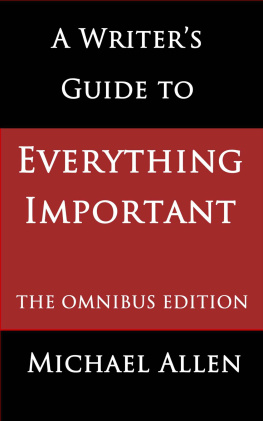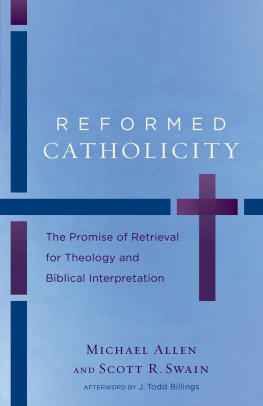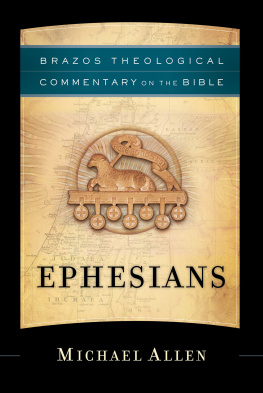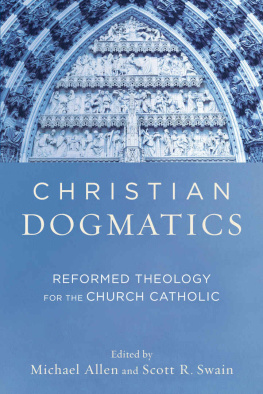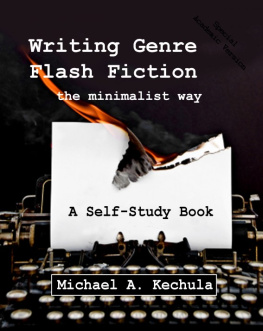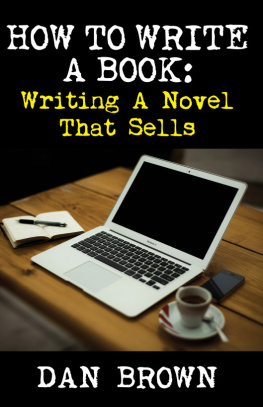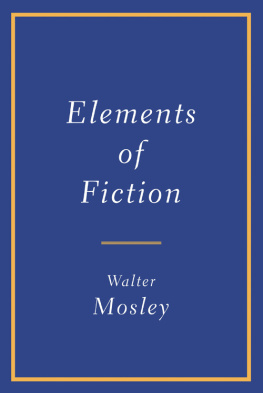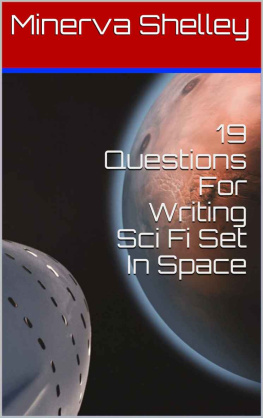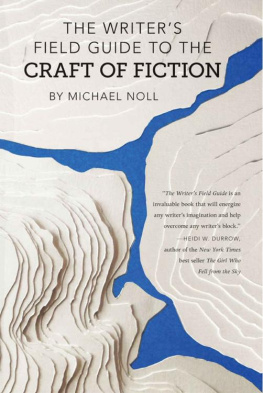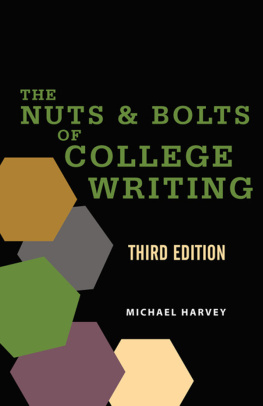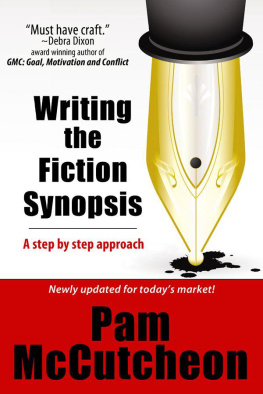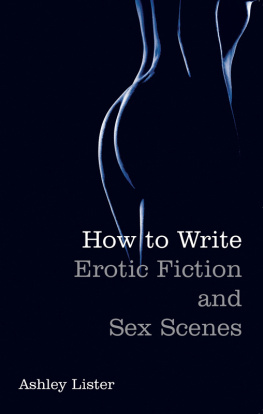A WRITERS GUIDE TO
EVERYTHING IMPORTANT
The Omnibus Edition of Seven Essential Guides for Fiction Writers
Michael Allen
Copyright 2014 by Michael Allen
This book contains the complete text of all seven books in Michael Allens series of practical guides for writers. The seven books are available for purchase separately, but by buying the omnibus edition you get the whole series, unabridged, for less than half the cost of buying them as individual items. This book contains over 125,000 words in total.
***
OVERALL INTRODUCTION
This book is primarily intended to provide valuable information for any young or inexperienced writer who wishes to write full-length fiction. Much of it may well be helpful to those who write short stories or non-fiction.
You can start at the beginning and read through to the end; but if you prefer you can jump immediately to the section which most interests you. See the Table of Contents, immediately below.
Each of the seven guides has been reproduced here in full; you will therefore find that there is some degree of duplication. For instance, each book contains a section which provides some biographical information about the author. Occasionally, the same information will be used to illustrate the same point, if it crops up in two different books. In most cases, it will do you no harm whatever to be reminded of relevant facts and examples.
A WRITERS GUIDE TO
TRADITIONAL PUBLISHING
Some writers still want to do things the old-fashioned way.
But is that a smart move? (Clue: No. It isnt.)
Michael Allen
Copyright 2014 by Michael Allen
***
There are people in the publishing world more than a few, actually who would steal the pennies off a dead mans eyes.
Stephen King
***
PART 1: TRADITIONAL PUBLISHING An introduction to the subject
1.1 Why did I bother to write this ebook?
Answer: Because for the last few years Ive been writing a series of books which are intended to be helpful to young and inexperienced writers especially those who are interested in writing fiction. This book is another in that series.
Although it is fifty years since my first novel was published (1963), all my writing was fitted in at the end of a working day as a professional educator. And since I spent so long as a teacher and educational administrator, my instinct is to try to pass on to younger people as much of my hard-earned knowledge as possible.
It seemed to me, when I began to put together material for this book, that it would be useful to write a short account of the massive changes in book publishing which have come about in my adult lifetime particularly during the last ten years.
I would end the book (I thought) with a nicely balanced section which would point out that an as-yet-unpublished writer can choose to go one of two ways. Either she can try to get her work published in the traditional way by approaching long-established book publishers who create printed books which are then sold in bricks-and-mortar bookshops or she can publish her work independently, without any help from anyone, by self-publishing her novel in ebook form, principally via Amazons Kindle Direct Publishing facilities. I would leave it to the writer I thought to consider the balance of advantages in either way to find readers.
Thats what I thought I would do.
But now, having completed a first draft of this book, I find myself quite incapable of doing any such thing. So Ive had to come back and rewrite this first section.
In preparation for writing this book I assembled a huge pile of press cuttings and blog posts printed off the internet. And having ploughed my way through all that material, reading it for a second and third time, it seems to me that I have no choice but to speak plainly, and to advise new writers accordingly.
Once, and only a few years ago at that, it was absolutely obvious that an ambitious new writer with any sense would (a) try to get a literary agent interested in their work, and then (b) leave it to the agent to find a publisher for them, and finally (c) work with that publisher for ever more or at least for a good few books.
But now, Im afraid, I have changed my mind entirely. Until I had completed re-reading all my research material, I had forgotten just how completely misguided that old way of doing things now is. It now appears to me that any clear-headed young writer, at least if she has taken the trouble to find out as much about modern publishing as possible, has no sensible choice other than to publish her own work by becoming what is often known as an indie publisher.
If you read through the rest of this book, you will at least see why I have come to that conclusion, even if you dont agree with it.
In the academic circles in which I once made my living, it is customary to expect that books which discuss serious issues will try to present a balanced and calm assessment of various alternative courses of action, without indulging in sweeping generalisations. But thats not actually very helpful, at least to those who are in a hurry. And in my experience, as-yet-unpublished writers are always in a hurry.
You will understand, I hope, that I am only trying to be helpful when I say that, over my working lifetime as a writer, the trade publishers of this world have proved themselves to be utterly clueless in almost everything that matters. I once used the phrase amateur night to describe the performance of firms which should, in theory, have been operating both efficiently and profitably. Well, they werent. And some of them were near as dammit criminal.
But for at least forty-five of the last fifty years, we writers were stuck with that. We had to put up with not to put too fine a point on it being royally screwed by some very nice and friendly people, people who were so lacking in self-knowledge that they were convinced they were doing nothing that was not fair and honourable.
But now now all has changed. The advent of the digital age which we may reasonably say began on 19 November 2007, with the sale of the first Kindle ebook readers has changed everything. Most traditional publishers, sadly, are too stupid, even now, to understand how deeply it has changed. And those who do understand have mostly responded by devising new ways to screw even more money out of ignorant writers who still think that a printed book and a slot on a Barnes and Noble shelf is the height of success.
So be warned at the start. My view is that modern writers (and Im writing in 2014) mix with traditional publishers at their own risk. The old way now seems to me to be utterly pointless, and, as a matter of fact, dangerous. Dangerous because if you go the agent-to-traditional publisher route, you will end up being asked (required?) to sign away many valuable rights for a period which is as long as your life plus seventy years. Probably longer than seventy years, actually, because there are a number of big-business intellectual-property holders which are very keen on extending the period of copyright far beyond seventy years. Such firms are working hard to persuade American politicians, in particular, to produced the necessary legislation. Some would say that said firms are doing this through bribery. But that, of course, is a wicked lie. In any event, the contract which is nowadays likely to be placed before you by a traditional publisher will certainly be a stinker. (See section 3.9 for details.)
No, the fact is that I could not suggest that there are two equally viable ways for a writer to proceed not with a clear conscience. If you want more detail as to why not, please read on.
1.2 What is traditional publishing anyway?
Traditional publishing is a term which came into use perhaps ten or so years ago, to distinguish the publishing of old-fashioned books, on paper, from the publishing of ebooks, such as this Kindle ebook which you are reading at present.
Next page
